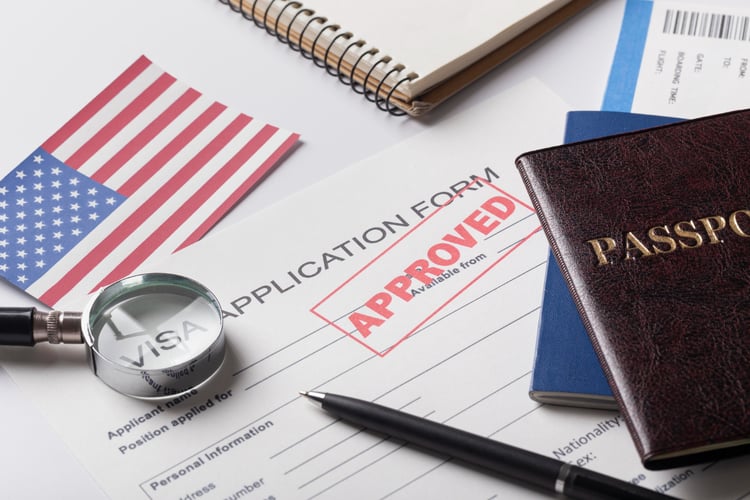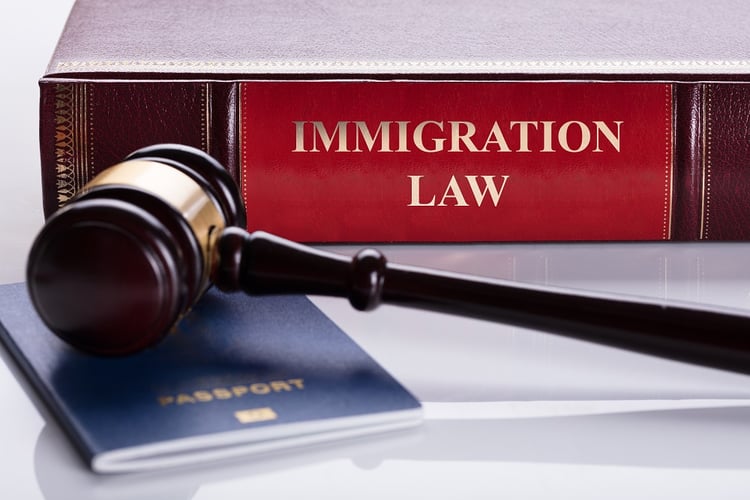
Immigration law is a wide field with many practice areas. Attorneys with varied legal interests can find a niche in immigration law, as long as they are committed to working with clients who are immigrants.
Some immigration lawyers work directly with the immigration process by guiding clients through the complex application procedures or defending them against removal. Clients who are represented by lawyers have a better chance of success than individuals who try to get through the system on their own. Other lawyers work in practice areas, such as family law, that may involve special considerations when the clients are immigrants.
Immigration law is constantly changing, and all immigration practice areas offer opportunities for lawyers who are seeking challenges.
Immigration Law Practice Areas Explained
The areas of practice for immigration lawyers include any aspects that touch the lives of immigrants. These include helping individuals gain citizenship or permanent residency in the United States, defending people who are at risk of being deported, helping businesses that want to hire people from other countries, advocating for asylum seekers and refugees, conducting impact litigation and advancing civil rights, and impacting public policy.
Depending on their chosen practice areas, lawyers may work for small, medium, or large law firms, non-profit organizations, and government agencies.
What Are the Practice Areas for Immigration Attorneys?
Immigration attorney practice areas include:
Family-based Immigration
This involves helping U.S. citizens or permanent residents unite their families by pursuing petitions to obtain green cards for their family members.
Business Immigration (also called “employment-based immigration”)
Lawyers focusing on business immigration may assist businesses seeking to hire workers from other countries or individuals who want to work in the U.S. Business immigration lawyers sometimes work for large law firms and may represent multinational corporations. They handle the complex visa application process and help ensure that their corporate clients are compliant with immigration law.
Asylum and Refugee Law
Lawyers working in this area advocate for people who are seeking permanent immigration status through the political asylum process.
Deportation Defense
These immigration lawyers guide clients through the deportation defense process, including representing clients at deportation hearings and appeals. This includes researching the law, writing briefs, dealing with complex procedural rules, preparing clients and witnesses for immigration court, and representing clients at their hearings.
DACA Applications
Attorneys in this practice help individuals through the Deferred Action for Childhood Arrivals (DACA) program application or renewal process.
Unaccompanied Minors
Immigration attorneys working with unaccompanied minors, who are under the age of 18 and came into the U.S. without a parent or legal guardian, help them with asylum applications or obtaining Special Immigrant Juvenile Status.
Forms-Based Practice and Litigation Practice
Forms-based practice areas include processing visa and green card applications. The procedures involved are complex and precise, and even small mistakes can cause long delays or denials. Attorneys in form-based practices use their experience to ensure that the process goes as smoothly as possible, giving their clients the greatest possible chance of success.
Litigation-based practices involve representing clients in administrative hearings or in federal court. Some lawyers focus on one or the other, while some have practices that include both forms processing and litigation.
Non-Profit Organizations
Immigration lawyers working in non-profit organizations usually represent low-income clients. They may practice in all areas of immigration law with the exception of employment-based immigration.
The Intersection of Immigration Law and Other Practice Areas
When immigrants need common legal services, such as family law services or estate planning, there may be special considerations that their lawyers have to take into account. For example:
Estate Planning Estate planning lawyers can help protect undocumented immigrants with deportation trusts. These instruments help ensure that if a client is deported, their children will be taken care of and their assets protected.
Criminal Defense
When an immigrant is charged with a crime, it can threaten their immigration status. Lawyers working in this area may defend clients in criminal court as well as defending clients with criminal convictions against deportation.
Family Law
Some family law proceedings may affect immigration status. For example, an individual who has a green card who violates certain court-issued protective orders may be subject to deportation.
Choosing an Immigration Law Practice Area
Students and early-career lawyers who are interested in working with immigrants have many choices for practice areas. Students can gain exposure to different areas by seeking out internships or other opportunities to volunteer or work in immigration law firms, organizations, or government agencies.
Early-career lawyers who are not currently practicing immigration law can apply their experience to serving an immigrant population. Here at Novo Law, we hire lawyers with experience in criminal defense, family law, estate planning, business law, impact litigation, and civil rights. Refer to our careers page if you are interested in pursuing an immigration attorney position with our firm.



